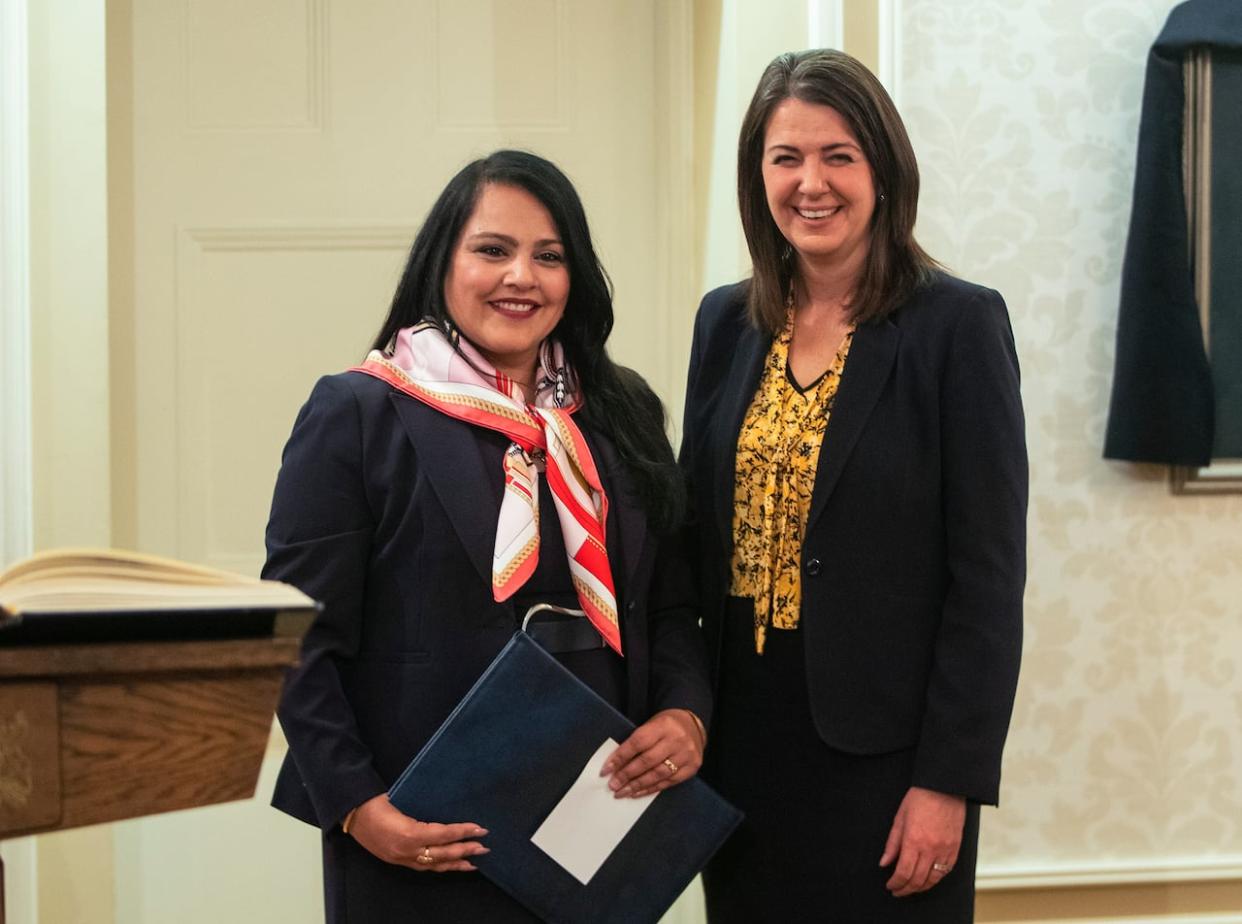Alberta premier gives mandate to have for-profit colleges offer diplomas and degrees

Alberta's premier wants the advanced education minister to pave the way for private career colleges to deliver accredited diploma and degree programs.
The proposal raises concern from advocacy groups that for-profit career colleges in the province could eventually receive public money after the government slashed funding to public universities, colleges and polytechnics.
Premier Danielle Smith outlined the proposal in a Friday mandate letter to Minister Rajan Sawhney, along with 17 other goals.
In a Friday interview, Sawhney said any funding to for-profit institutions would be decided on a case-by-case basis and be driven by labour shortages.
"We are not going to be providing public funds to private colleges any time soon," Sawhney said. "Unless there is a compelling economic reason that's outlined very clearly. Our public funds are going to public institutions for a reason."
The premier's proposal comes four months after the United Conservative Party government, for the first time, named a for-profit college, MaKami College, as an "Independent Academic Institution."
The provincial government says the designation will allow increased enrolment in programs with workforce shortages and more partnerships between institutions.
Five other independent non-profit institutions, including Edmonton-based schools Concordia University and The King's University, receive public funding. While they have to meet many of the exact requirements of other institutions, the government does not appoint their board members or approve their mandate.
Sawhney said independent institutions and career colleges fill an essential gap by offering in-demand programs, and sometimes on a quicker timeline than public institutions, which reduces student costs.
Career college programs that cost more than $1,000 must be licensed and are subject to provincial inspection, according to the province's website. There were 190 career colleges offering 980 programs at last count, the website says.
The Parkland Institute has critiqued the government's direction, saying public money should be directed to grow seats at public institutions rather than subsidizing a private business.
Brad Lafortune, executive director of Public Interest Alberta, says private institutions are not subject to the same level of oversight as public ones. And a potential gap in quality of programs and training is a concern if for-profit institutions are teaching future health-care workers, he said.
"The skills and training required to provide those services needs to be of the highest standard," he said.
Lafortune said for-profit institutions may be prone to rely on part-time faculty receiving lower pay and in less desirable working conditions to keep costs down.
A focus on credentials
The premier has also tasked Sawhney with improving how quickly people moving to Alberta can get their professional credentials recognized.
The letter asks Sawhney to develop "auto-credentialling" for health-care workers such as doctors, nurses and paramedics with similar training to Alberta so they can get to work faster. Sawhney says that means removing barriers to professional recognition.
A new law took effect this year, requiring regulatory bodies for about 100 professions to decide within 20 days whether a person's credentials from another province will be recognized in Alberta.
Foreign-trained professionals are supposed to receive an interim decision within six months.
Alberta relies heavily on attracting workers from other jurisdictions to fill labour shortages in health care, skilled trades and other fields.
On Friday, Sawhney said there are still unnecessary delays.
"Stakeholders and Albertans are saying that it's taking way too long and that the process is not straightforward," she said.
On her to-do list is to pass legislation that requires the province's professional regulatory associations to have a uniform governance framework.
Smith has also asked Sawhney to work with regulatory bodies and post-secondary institutions and make recommendations to "protect the free speech rights of Alberta professionals."
Sawhney said she hadn't been briefed on the concerns that have prompted these instructions.
Lafortune says what's missing from the mandate letter are measures to make post-secondary education more affordable and accessible.
The province has slashed hundreds of millions of dollars from post-secondary funding since 2019, asking institutions to rely more heavily on tuition to cover costs.
While improving the speed of credential recognition is an important measure to attract workers to Alberta, Lafortune says efficiency cannot come at the expense of quality and rigour.


